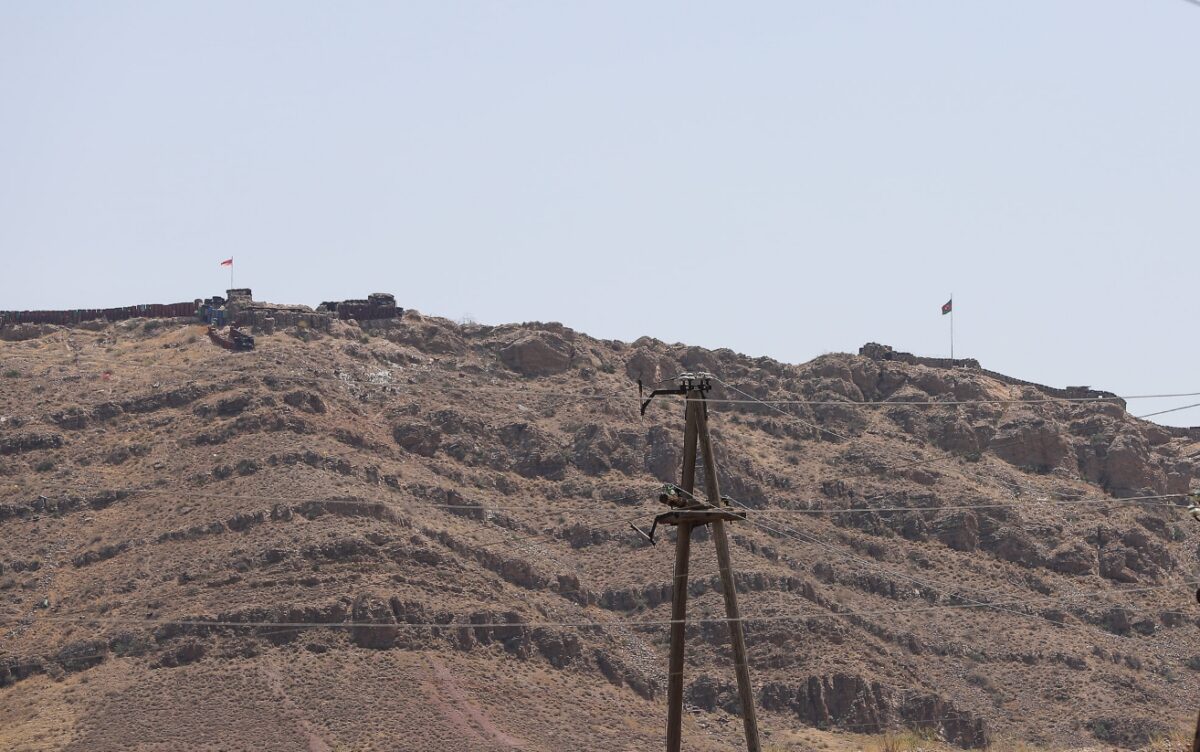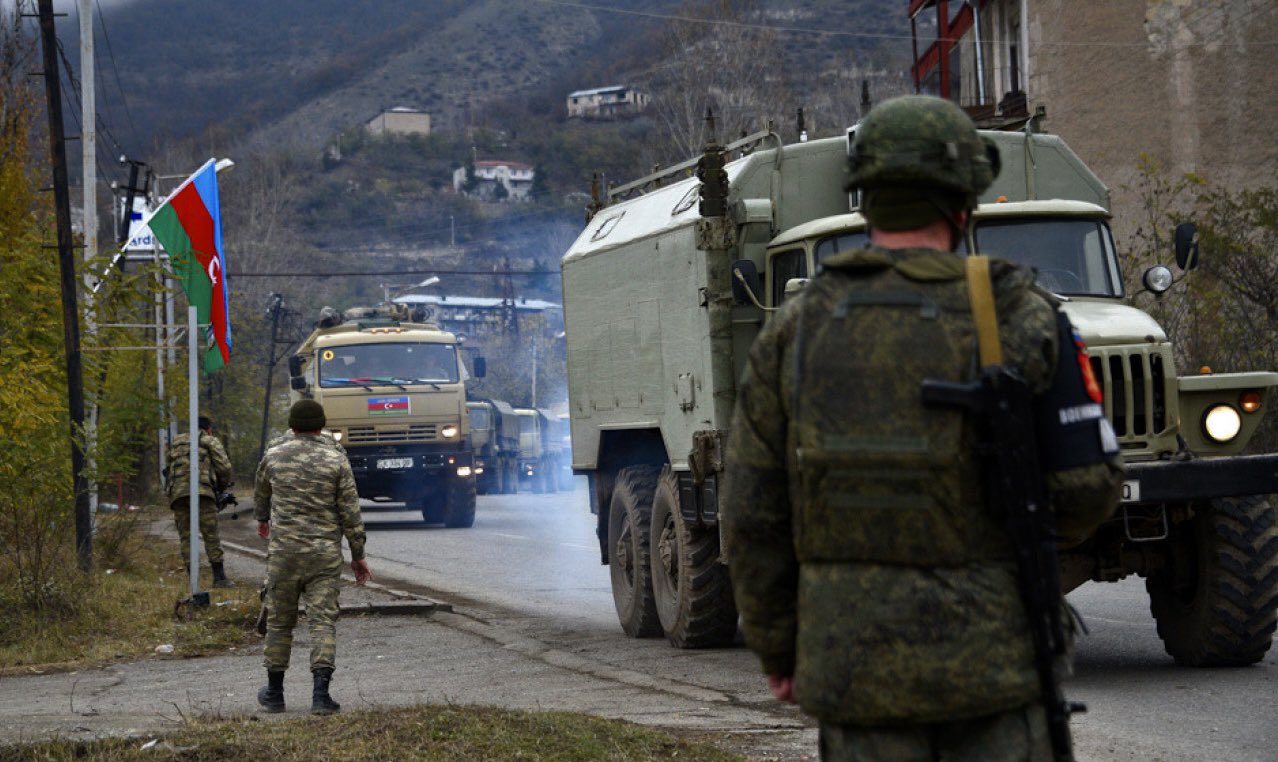Consequences of the ongoing blockade in Nagorno-Karabakh
Ongoing blockade in NK
The humanitarian crisis in Nagorno-Karabakh has worsened after the installation of an Azerbaijani checkpoint on the Hakari bridge, with movement along the Lachin corridor becoming more difficult even for Russian peacekeepers.
On the 138th day of the blockade, Azerbaijanis who declare themselves environmental activists stopped their protest in the Lachin corridor. According to reports from the unrecognized republic, they were replaced by “Azerbaijani police forces”. Baku continues to insist that the road is not closed, although free movement has been stopped since December 12, 2022. It is reported that 190 times fewer people moved along the highway connecting the Armenian city of Goris with NK. All trips along the road took place with the mediation of the Red Cross and Russian peacekeepers.
The Armenian authorities have repeatedly announced that they do not intend to conduct “negotiations” with Azerbaijan on new regulations for the regime of the Lachin corridor, saying this was already done, and the result of those negotiations are enshrined in a tripartite statement signed by the leaders of Armenia, Russia and Azerbaijan in 2020.
On April 23, Azerbaijan established a checkpoint near the Khakari bridge. The former commander of the Russian peacekeeping contingent Andrei Volkov personally participated in the negotiations to unblock the bridge. However, they did not give results. The negotiations, which Alexander Lentsov, who replaced him, have been conducting since his appointment to the post, have also proved fruitless. On May 2 Azerbaijani media reported that an American-made Smiths Detection X-ray scanner was installed at the checkpoint.
“No to the ethnic cleansing of Artsakh”
On May 3 group of NK residents set up tents on the road and announced an indefinite protest — “No to the ethnic cleansing of Artsakh”. They demand the removal of the checkpoint. Prior to this, local young people were collecting signatures for the petition “No to the ethnic cleansing of Artsakh.”
Opposition member of the Armenian parliament Taguhi Tovmasyan supported this initiative and started collecting signatures in Armenia. She has been holding a rally with the same slogan in the center of Yerevan since May 3.
Going home is impossible
From the unrecognized republic it is reported that as a result of the blockade, 3,900 people, including 570 children, have not yet been able to return home.
The message once again emphasizes that, according to the tripartite statement of November 9, 2020, the unhindered movement of people, goods and vehicles along the Lachin corridor is stipulated. Meanwhile, only cars of the International Committee of the Red Cross and Russian peacekeepers are moving along the road:
“In general, the movement of cars on the motorway has decreased by 53 times than it could have been if there had been no blockade.”
Patients unable to operate
Planned operations have not been carried out here since December 12 last year. According to the latest information from the information headquarters of the NK, during this period, about 1,175 citizens lost the opportunity to be operated on.
For surgical intervention, patients are forced to move to Armenia with the mediation and accompaniment of the International Committee of the Red Cross. To date, about 400 people have received this opportunity.
“In addition, the transportation of patients lying down is impossible, since the Azerbaijani side prevents the movement of resuscitation vehicles of the local emergency service along the road, and the Red Cross does not have such vehicles. In this regard, the transportation of all patients is carried out by ordinary vehicles in a sitting position, ”the information headquarters reports.
To make medical services more accessible, the We Are Our Mountains agency decided to create mobile teams. Residents of rural areas will have the opportunity to be examined thanks to the mobile ambulance service.
“We are talking about therapeutic examination, general screening studies, detection and control of infectious and non-communicable diseases, as well as laboratory studies,” the agency said.
Access to humanitarian supplies is limited
From December to the present, about 13 times less essential goods have been imported into NK, during the blockade it was not possible to smuggle 57 thousand tons.
The situation has become more complicated since the end of April, with the establishment of the checkpoint. On April 28, Azerbaijani border guards held the cars of the Russian peacekeeping contingent with humanitarian cargo from Armenia for almost 14 hours. The trucks were carrying food and basic necessities. They were let through only after negotiations with the military command of the RCC.
People have lost their jobs, the economy has suffered losses
The damage to the economy is about $270 million. About 30 percent of the projected annual GDP ($903 million) will not be generated.
Due to the inability to work under the blockade, 860 businesses (20.1% of the total) have suspended their activities. The rest work partially or with state support.
“According to preliminary estimates, about 10,300 people have lost their jobs and sources of income since the beginning of the blockade.”
No electricity, gas supply partial
Azerbaijan is periodically completely or partially stopping gas supply to NK. Electricity has not been supplied from Armenia for 115 days. According to Artsakhenergo, Azerbaijan is not allowing repairs on a high-voltage line by which electricity is supplied from Armenia. The accident occurred on the territory under the control of Azerbaijan. Local resources are not enough to supply electricity to the population around the clock:
“This has resulted in daily rolling blackouts and additional emergency shutdowns, as well as the closure or reduction of activities of many institutions.”
Follow us – Twitter | Facebook | Instagram
Action “No to the ethnic cleansing of Artsakh”, the consequences of the blockade of NK





















